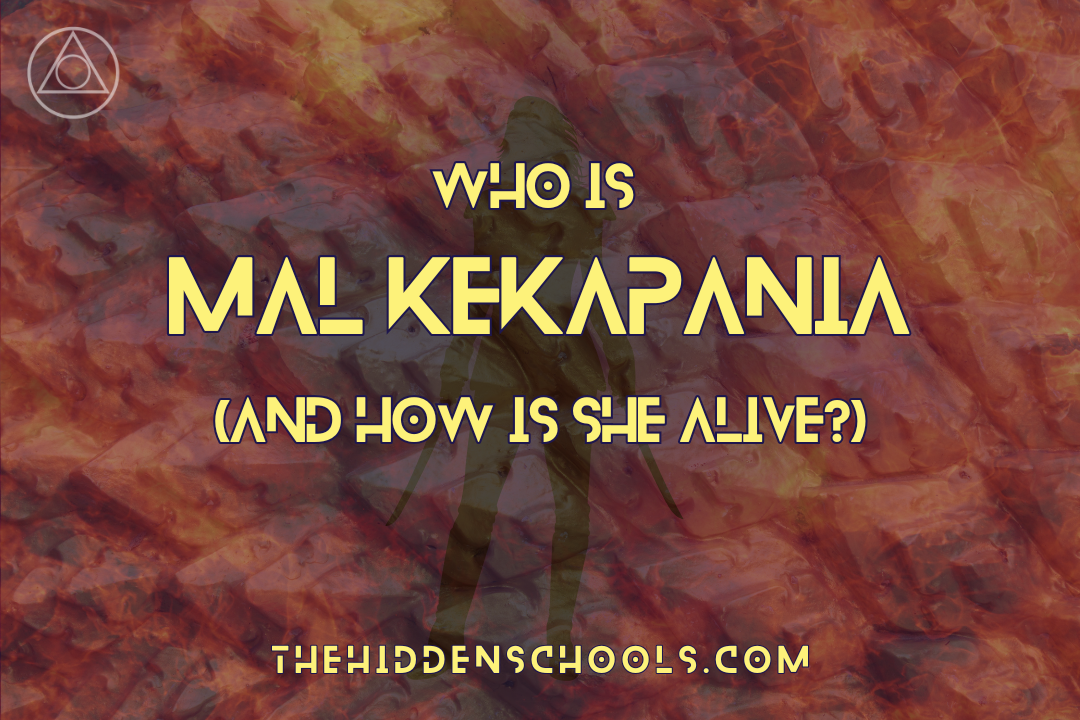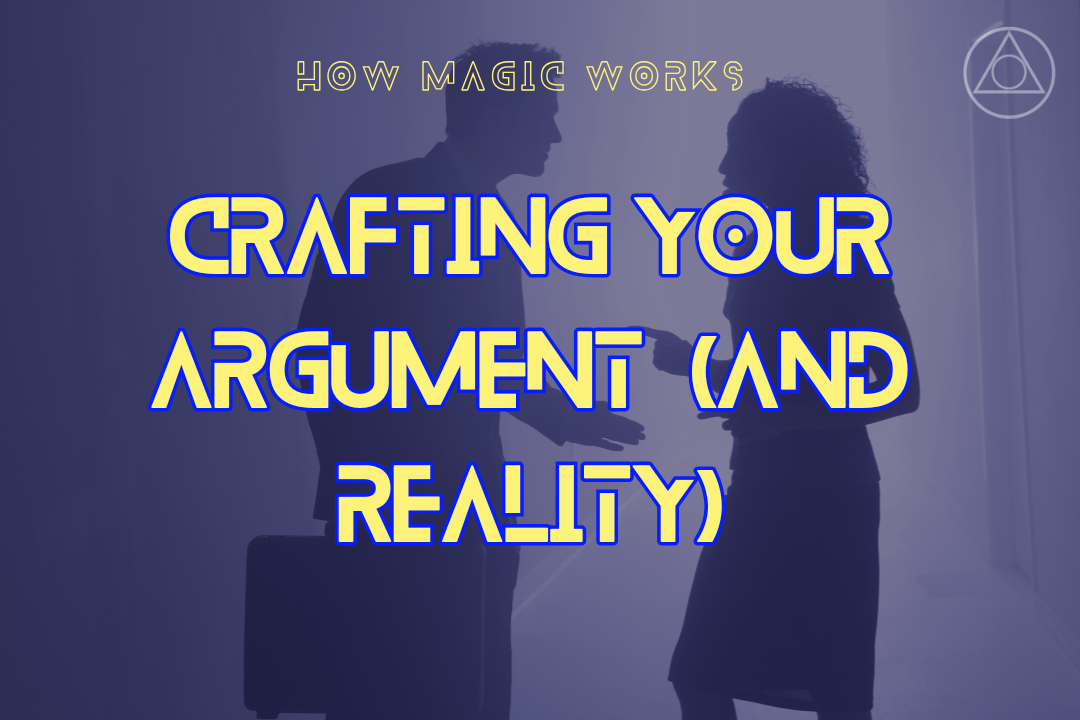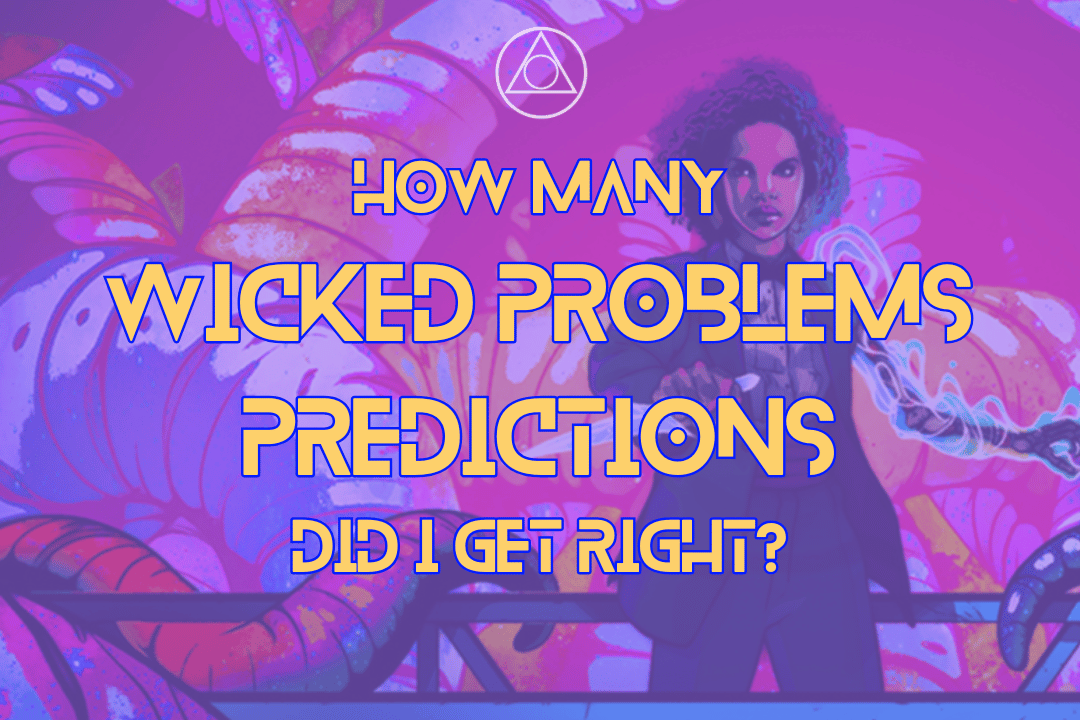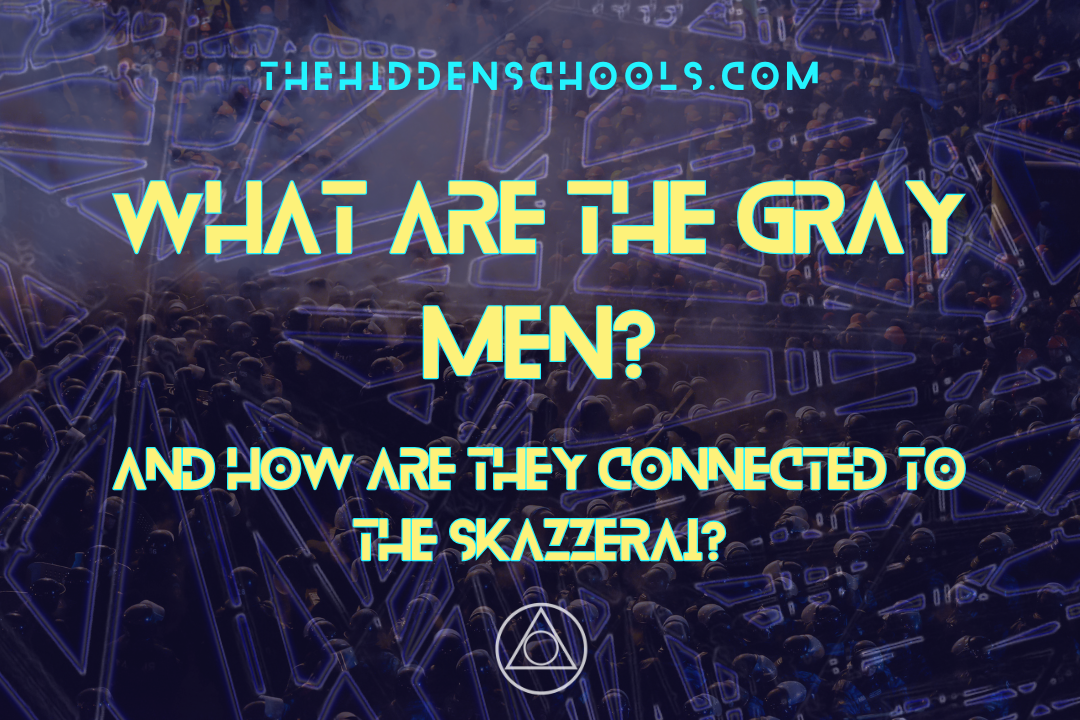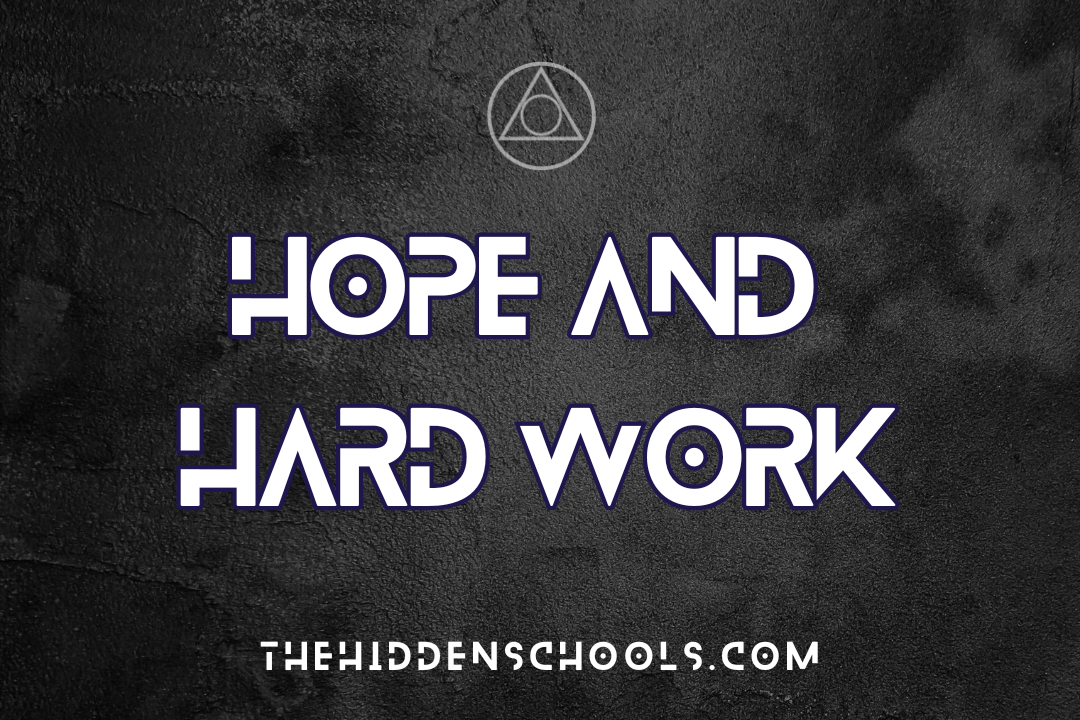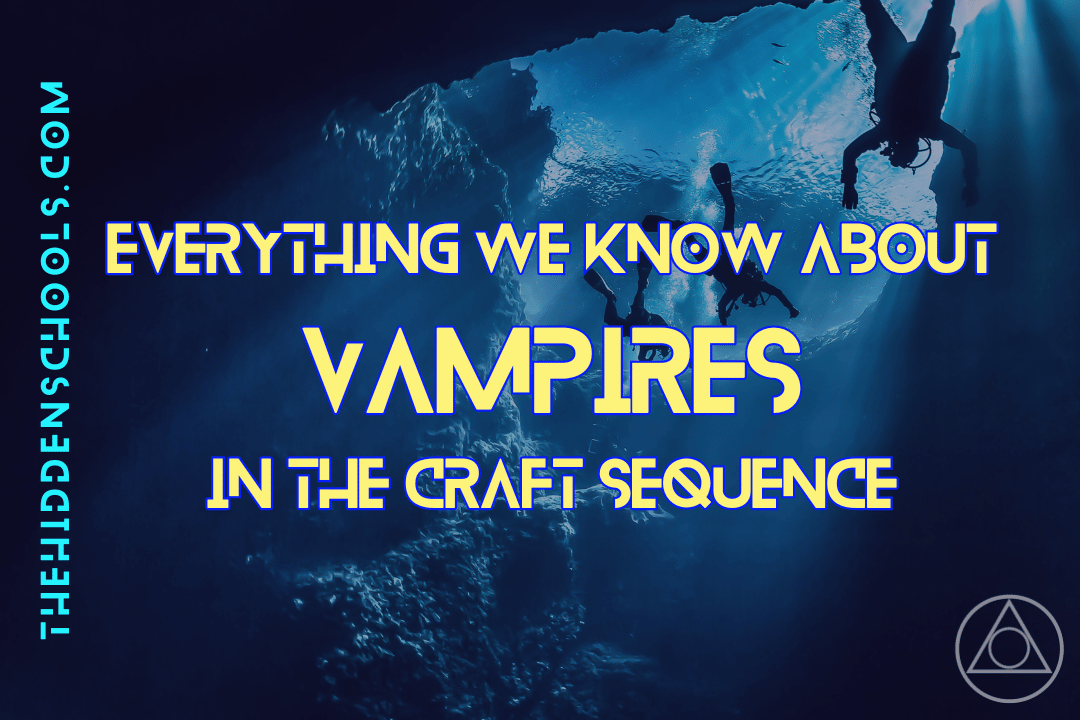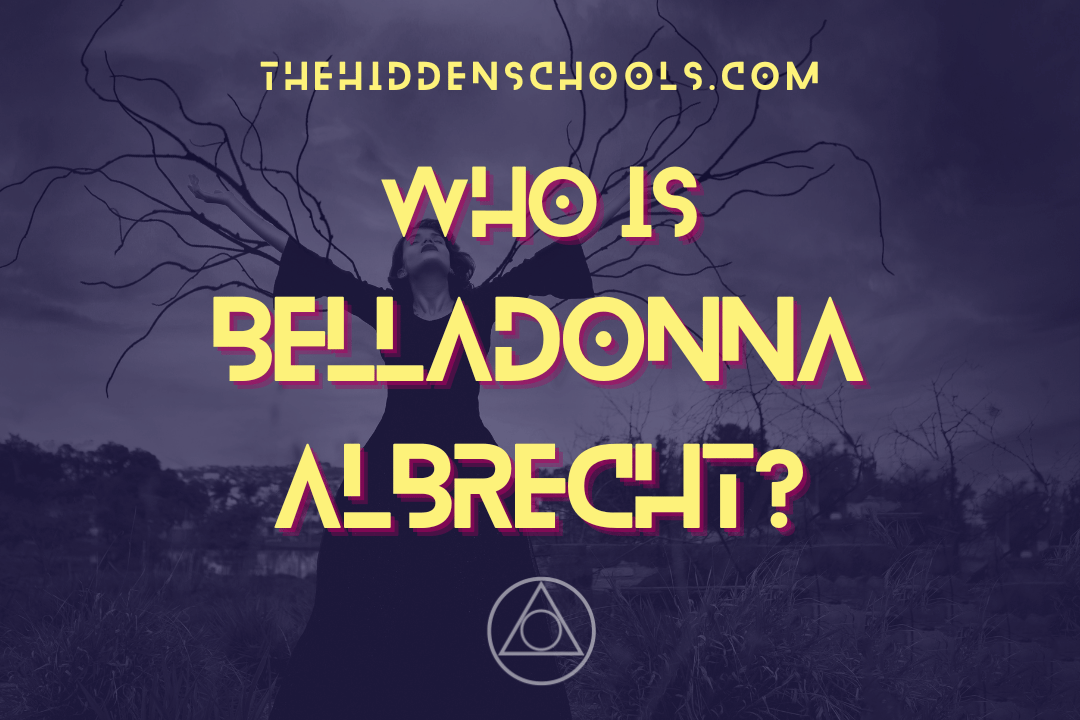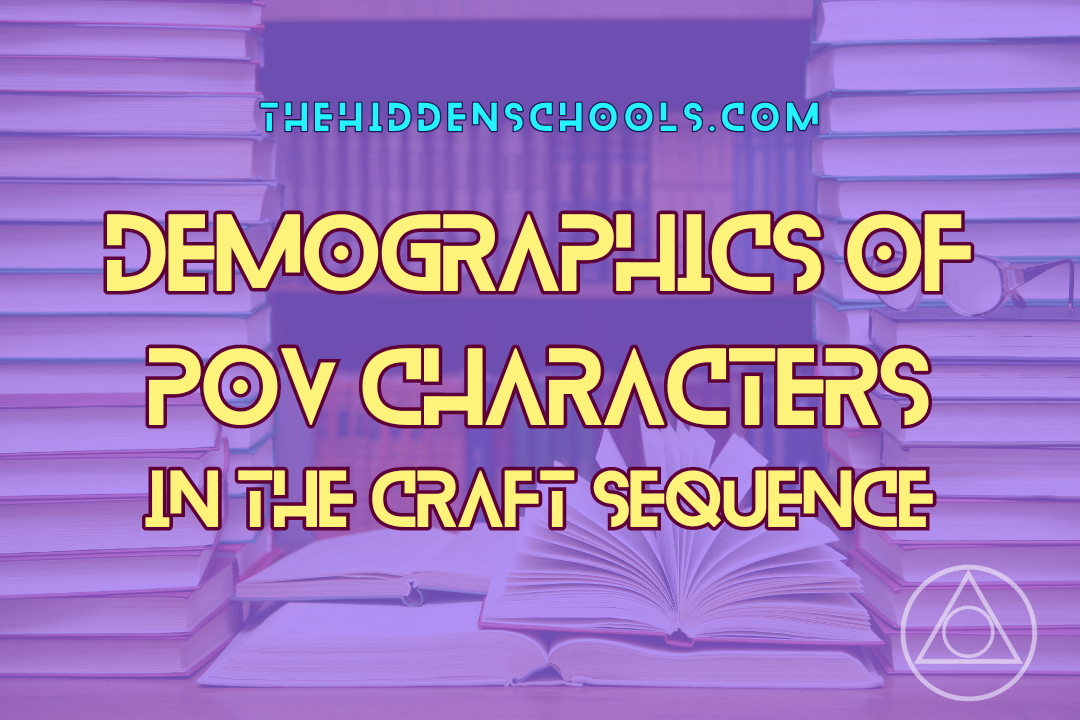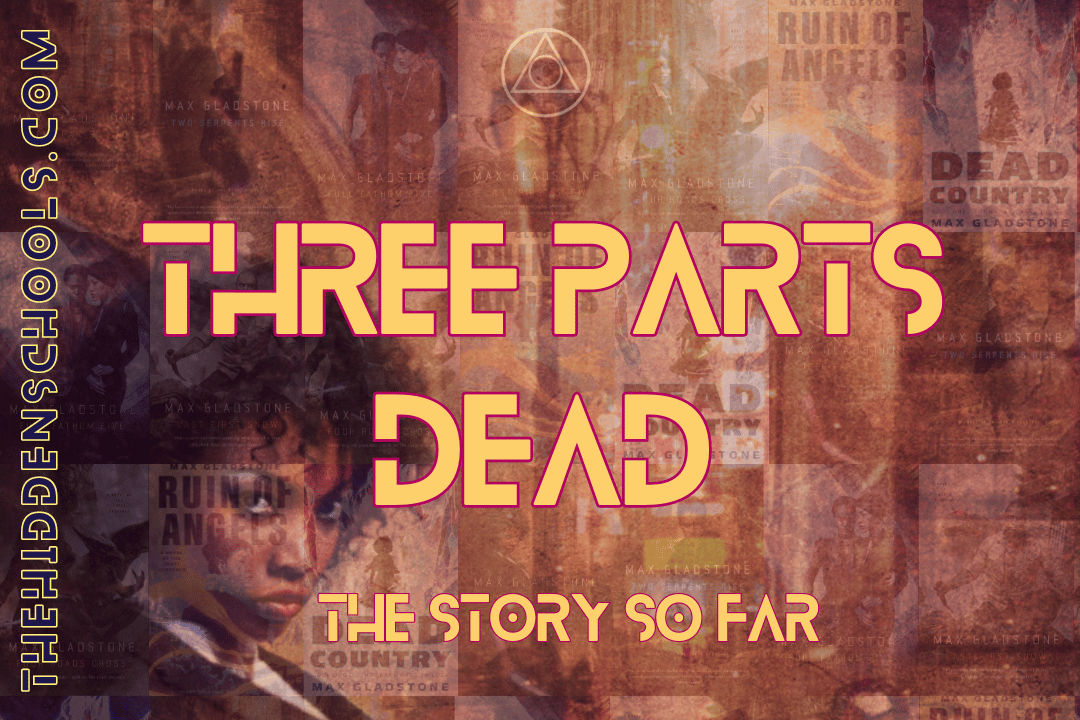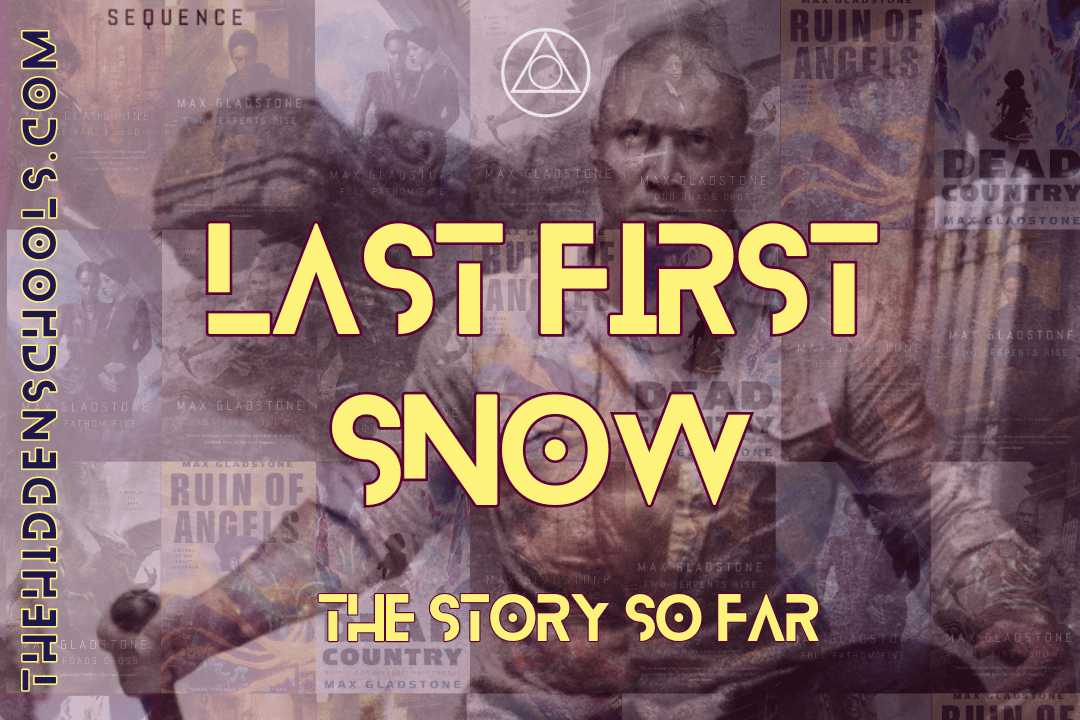Visions in the Edge Storm | Space Spiders
Extensive spoilers for Dead Country. You probably also want to read our first space spiders articles before this one.
Imagine, if you will, that you’ve spent the last couple of weeks building a magical defence of your hometown, a town you loathe but to which you’re connected by blood and birth; that you fought a battle against powerful enemies, and won, only for them to abduct the one person to whom those magical defences are tied.
You cross a vast wilderness with your new apprentice, and your new lover (not the same person), only for a magical storm to whip up right in your path. If you go around it, you’ll be too late to save the man and thus your town. If you go through it, you’ll probably lose your mind.
That’s the situation in which we find Tara Abernathy midway through Dead Country. And Tara being Tara, she doesn’t give up. This is, as an old enemy once said, not a woman who knows her limits. She’ll go for the long-shot solution.
Thus, the edge storm.
But, I hear you ask, what actually is an edge storm?
“Storms are a mixing process. They happen when great differences meet—hot and cold, low and high, positive and negative, reality and dream. The Crack is a Wars-wound so deep that other places and times bleed through it. When a change draws near in our world, we end up out of balance with the infinite others. So you get a storm, where futures flash like lightning and crumble like thunder. A storm of destinies.
We’ll ward ourselves and ride through. Rules are soft in the storm. Distance becomes malleable. We can cover ground fast.”
“What will it be like, inside?”
“We’ll be surrounded by other times, other worlds. So long as we stay inside our wards they’ll be no more real than shadows, but like any story, they’ll gain substance if we give ourselves to them. We could get lost out there and wake in other lives.”
“You’ll hear voices on the wind. You see visions through the lightning. Ignore them. But the storm’s most dangerous trick is knowledge. You will find yourself knowing things you’ve never learned, or starting to know them—like the tip of a memory, or a taste that unfolds into your childhood. The knowledge is not always false, but it is always from outside, and if you follow that memory from reference to reference, it will wrap you in the world you’re remembering, and you’ll never come back.”
Have I mentioned recently how much I love Gladstone’s worldbuilding?
Thus, we have the stakes. To save Pastor Merrott, they need to cross the edge storm. This can work in their favour, making them cross distances faster. Yet, they could lose themselves in other worlds, other lives, other stories. Whatever they hear or see in the storm, they must ignore it or risk losing everything.
And so, our heroes enter the storm. In doing so, they learn more than ever before about the skazzerai and what’s coming for them - and the world.
This next quote is very long, and could be longer but I cut out a bit for a later section. Bear with me, it’s all important.
“Tara, you said they would show us different worlds.”
“I told you not to look.”
“But it’s all the same.”
She looked up.
Lightning domed the sky and through the spaces in between she saw the world—one singular world, split to many facets. The Badlands stretched beyond, ash gray and frozen, pierced by broken crystal towers taller than mountains: the wrecks of skyspires.
She recognised the buildings. They should have been all across the globe, from Xivai to the Shining Empire to Dresediel Lex. They fled here to make one last stand, too late. Jet-black spears like holes in space pierced them through and sank into the soil, through the soil into bedrock and magma beneath. Look up, and those spears towered into the sky.
There was no wind in the frozen waste beyond the storm. No sand to squint against. The world lay dead. Deeper than dead. In Tara’s line of work, dead was a place you came back from.
“Tara, I can hear them.” Tears froze in the corners of Dawn’s eyes. “The footsteps. Tara, it’s them. This is what happens when they get here.”
“Keep walking. Follow the needle.” It pointed straight and true. With each step the lightning dome shifted to keep them at its centre. This was the storm: the change all through its heart, its singular identity. Use that singularity to reach the other side. Don’t ask questions. Don’t look up—
to where the black spears join and twist into an iron web, to those great depths where self-assembling many-legged thousand-eyed structures the size of small moons and framed of bone and iron climb and curl and feed and pulse in their cold common dream—
and certainly don’t look in—
to those spears, those strands not made form iron after all but from thin spun carbon tubes clasped round with shadow gathered from the star-depths where they walk, and at each spear’s heart a hole the shape of a being that once was something not altogether unlike human—
when we cut one down and carved it open we found tissues fossilized, but by machines not minerals, tiny clockworks with hooks and spires and springs, more complex the closer we looked, like a trellis grown through with vines, they were unmistakably organic figures, mouths and gills and hearts and livers and eyes, microstructures all overgrown with nanofilament carbon, all hollow, all screaming—
—survivors claim they heard an offer, a deal. Surrender all. Gain all.—
—carved them out from the induction beds and those who recovered did not appear to register sensory input, but when we showed them the machines the patients clawed for them again. One patient whose left leg was severed during the extraction tried to walk on the stump to get back inside. Attempted to convene through nightmare telegraph—
—of bliss and bliss and bliss forever and don’t stop cutting, oh please don’t—
—please—
—surrender all, gain—
This was another world. Maybe this was all other worlds. Their futures, bleak and certain. Focus on the needle, on the silver thread, on Pastor Merrott, on Edgemont. On Connor, by your side, watching the needle as if there were no monsters overhead. On—
Dawn. Who wanted more than anything to know.
Dawn, who slipped free of her thread to step through the lightning, arms flung wide as if for a lover’s embrace.
She burned bright against that ash-grey world, her eyes open, staring up, and the darkness rippled toward her, with its many thin and hooked legs.
[Tara] ran.
The lightning passed over her like a waterfall and the world around was cold. Frost formed on her skin. The clouds of her breath were cut by machines too small to see. She did not breathe in, did not look up or out, tried not to think—just reached for Dawn, whose outstretched fingers were already coated in quicksilver fog, who stood rapt beneath the immense many-legged thing that moved against the stars above.
Tara tackled her. She fought, through air heavy with machines. Tara was stronger. Dawn screamed again and again, taking in lungfuls of the quicksilver fog, of the dust in the air that tensed and writhed with the monstrous intent that owned this whole dead world.
Step by step Tara dragged her back, though Dawn’s nails clawed her arms and cheeks—back to the lightning dome, smaller now than it had been seconds before and shrinking still. New stars lit the night: eyes in that dead sky revolving to face her. A mouth opened beneath her feet.
She stumbled through the lightning, and as Dawn collapsed and the stars that were those eyes bore down against the thin barrier between the worlds, Tara threw her will against the storm, certain as a scream, driven by all her soul and all the power she could seize.
The world was rotten, and split.”
Well.
Let’s, uh, let’s unpack that, shall we?
The end of the world is coming
The skazzerai are coming, that’s for sure. The edge storm is supposed to show you all possible futures, but now it shows only one - the Domain, the world of the Craft, destroyed by these immense beings from the end of space. The Domain, a world of necromancy and lives after death, is “deeper than dead” from the battle. The great skyspires of Craftsfolk, homes and business and machines of war from around the world, gathered to fight and were destroyed.
Craftsfolk, who defeated real, literal gods in the last century, destroyed. And if this world is deeper than dead, presumably the rest of the gods went with them - Kos, Seril, the Blue Lady, Ajaia, Firekeeper, every god we have names for and more that we don’t.
But what killed them?
What are the skazzerai?
We already knew they looked spider-like and are utterly immense. But now we have a clearer visual. The skyspires were destroyed by “jet-black spears like holes in space”, which “sank into the soil … into bedrock and magma” and “towered into the sky.”
My first thought was that these spears were legs of the spider-like creatures, but on a closer read the spears seem to be the web in which our space spiders exist. Looking up, you see “where the black spears join and twist into an iron web, to those great depths where self-assembling many-legged thousand-eyed structures the size of small moons and framed of bone and iron climb and curl and feed and pulse in their cold common dream--”
The space spiders, the skazzerai are up there: self-assembling, many-legged, thousand-eyed structures, framed of bone and iron. Are the skazzerai alive? Are they post-death, in the way Denovo planned to step beyond life and death and become a god in Three Parts Dead? Are they machines? Are they all of these things at the same time?
Are the images of spiders passed down from time immemorial a depiction of the fabricated bodies housing great Craft-intelligences? Perhaps the only way these great beings can interact with the physical world? We know from previous books that gods struggle to understand and interact with the real world - think of Seril struggling to make Tara a snack in Four Roads Cross: “You wouldn’t believe how hard it is to do things with matter. Every activity on this plane involves so many counterbalancing forces and microscopic, hells, quantum interactions” (99).
If the skazzerai are powerful enough to break the world, destroy gods and Craftsfolk deeper than dead, they are likely to outstrip the capabilities of any natural body and require something else to work through.
(If you’ve read the book - which you should have, my god, SPOILERS) you’ll see where I’m going with this.
If not, well. You’re in for a treat with part three.
What are the skazzerai doing?
The skazzerai don’t seem to be eating people in the way we’d think in our world. We’ve heard they smell us, they’re hungry etc, but as they seem to be Craft beings without traditional physical forms it’s not animalistic hunger and eating. Rather, it seems they’re draining something. Life, energy, soulstuff, Craft… whatever you want to call it, that seems to be how they make the world deeper than dead.
Because, of course, we see that the great webs in which the skazzerai exist actually hold sometimes still-living (to some quality of ‘living’) beings:
“At each spear’s heart a hole the shape of a being that once was something not altogether unlike human … We found tissues fossilized, but by machines not minerals … unmistakably organic figures … all screaming … those who recovered did not appear to register sensory input, but when we showed them the machines the patients clawed for them again.”
So, organic beings from other planets are found in each spear, each strand of the skazzerai’s web, the web in which ancient, hungry, immense Craft beings eat. It sounds to me that the skazzerai feed off the soulstuff of victims in the web, like spiders suck blood.
But, crucially, it seems those victims want to be there. Patients rescued from the spears want to go back. And we hear that “survivors” - which I take as those who were never part of the web, but I could be wrong - “claim they heard an offer, a deal. Surrender all. Gain all.”
Now, that sounds even more Craftlike to me.
The Craft is all about deals, bargains, agreements. Its foundational principles are necromantic contract law. It appears the skazzerai have made their own deal with their “victims”. We get your soulstuff and you get bliss forever.
Surrender all - we have you, all of you, for all time.
Gain all - but you’ll like it.
This also sounds very similar to something we saw in Ruin of Angels, part of the Iskari religion. Kai and Tara see a man “hung from the far wall, limbs wrapped in octopoid arms” (251) who they think is being tortured. However, when the instruments of ‘torture’ are removed, he begs for their return:
“What you see here,” Bescond said, “is entirely consensual … Gretancourt is a Sergeant in Rectification, of excellent record and high standing. Union with God is affirmation, pleasure, glory.”... She peeled the gray hand back from Gretancourt’s mouth.
Kai heard him whisper: “don’t stop don’t stop not yet put it back put it back put it back”
The Craft and Applied Theology are the same thing through different means. The union with the Iskari squid god could be very similar to an ecstatic union of Craft - and sounds very like what we read of a victim of the skazzerai, crying out “--of bliss and bliss and bliss forever and don’t stop cutting, oh please don’t–”
Which brings us to the next section.
Skazzerai, the Craft, and the future of Deathless Kings
We’ve often seen the Craft described similarly to the skazzerai. In Tara’s first scene she sucks the energy out of an oasis and some vultures to sustain her own life. In Three Parts Dead we’re told “Gerhardt’s first experiments created half the desert we call the Northern Gleb” (261). At the end of Two Serpents Rise, Caleb says “The Craft makes Dresediel Lex possible. But use the Craft to farm, and the soil dies. Use the Craft to drill wells, and the land itself sinks” (344). We hear time and time again that “high-energy Craft” sucks the life out of everything around it, and this life, or energy, or soulstuff, is not easily replenished - it’s deeper than dead.
Are the skazzerai the logical, inevitable endpoint of the Craft?
Way back in book one, Denovo talks about leaving the planet to stride among the stars, asking Elayne “[do] you think we’ll still be human when we get there?” (257).
Is this what he meant?
Perhaps. You’ll have to tune in for our next article, for which I’m wavering between two titles: what Denovo did in the desert, or, Denovo, the Body, and the Others.
Either way, you won’t want to miss it. See you there, hopefully soon.
“Tara—can we beat those things?”
“I don’t know.” Lies. She’d promised herself she wouldn’t do that, when they started. “I’m not sure. Maybe what we saw, it wasn’t what I heard in the crystal.”
“You said the storm shows the past and the future.”
“THE past. THE future.” She was too tired to hide her scorn. She’d shut down the parts of her that knew how to be polite and teacherly. “There’s more than one. You should know that by now.”
“But if there was a big change coming—so big and so outside what we know that we couldn’t imagine it before—couldn’t that cause a storm? A storm days across? A storm with just one world on the other side?”
“Maybe.”
She pointed past the complex, at the Crack in the World.
It stretched from horizon to horizon, for miles and forever, full of aurora colours. When the Hidden Schools threw her out Tara had fallen not far from here—a few days’ walk, no more—and as she lay not quite dying she saw so many other worlds, worlds of metal and machines, worlds without any Craft at all. Now when she looked through those coruscating lights, she saw only stars that were eyes, and black metal lines like webs that bound them.
From here they should be able to peer through all possibility—but she saw only that frozen, broken world, heard the screams of minds webbed in nightmare, and those terrible, skittering footsteps.”
What do you think? Let me know - and don’t forget you can subscribe to be the first to hear about new articles and fun projects in the pipeline.






